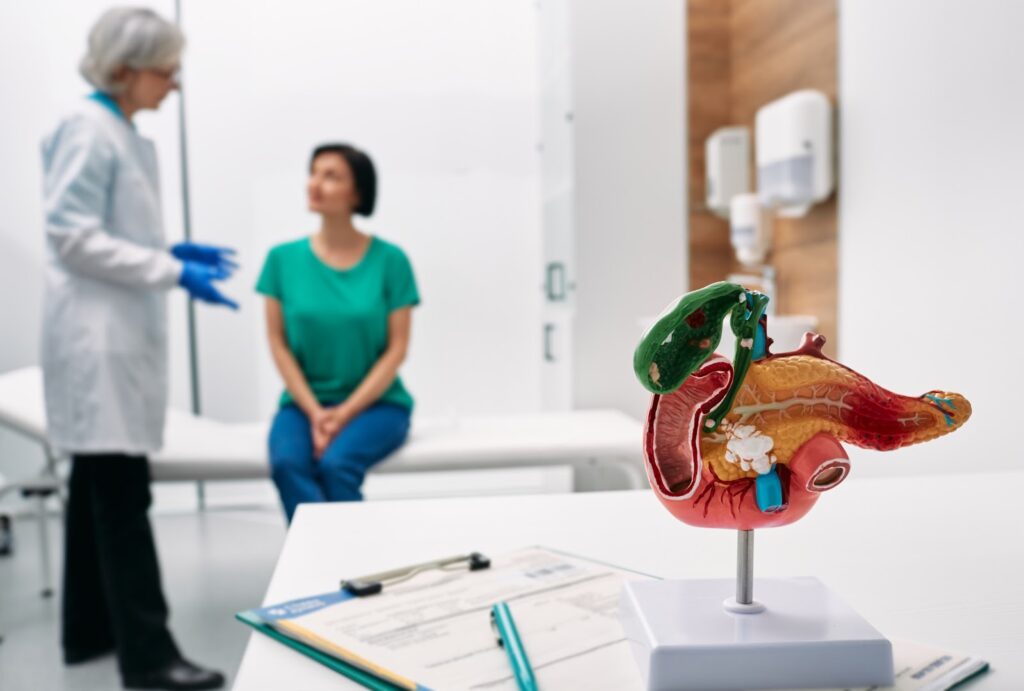Celiac Disease or Gluten Sensitivity—Know the Difference
Do You Have A Gluten Problem?
Whether you have Celiac Disease or just gluten sensitivity, we can help you understand the difference, and make the correct diagnosis.
What is Celiac Disease?
Celiac Disease (also known as Celiac Sprue) is an abnormal immune reaction to eating gluten, a protein found in wheat, barley, and rye. For individuals with Celiac Disease, ingestion of the gluten causes damage to the small intestine, which is where the body absorbs a lot of its nutrients.
What are the Symptoms?
Symptoms of Celiac Disease include diarrhea, abdominal pain, weight loss, and gas and bloating. If a patient has mal-absorption, he/she may be deficient in certain vitamins such as B12 or fat-soluble vitamins (A,D,E and K).
How is a Diagnosis Made?
A blood test is a non-invasive screening tool to diagnose Celiac Disease, but the definitive diagnosis is made by a small bowel biopsy. This is accomplished by performing an upper endoscopy, or EGD, in which a gastroenterologist uses a camera to look at the intestines, while the patient is sedated. A biopsy of the small intestine will confirm the diagnosis.
What is the Treatment?
Celiac Disease is usually treated by not ingesting any food or substances that contain gluten. Once this happens, the symptoms will usually improve within a few weeks to a few months, depending on the severity of those symptoms. In some rare cases, if the symptoms do not improve by dietary modification, the doctor may need to prescribe an immunosuppressive medication.
Treatment is important because Celiac Disease can lead to long-term problems. These include osteoporosis, joint problems and electrolyte and vitamin deficiencies. There is even a small risk of cancer associated with this disease.
What is Gluten Sensitivity?
Not everyone who has problems with gluten has Celiac Disease. There is a condition known as gluten intolerance or sensitivity that is distinct from Celiac. These patients can have similar symptoms, but test negative for Celiac Disease. Gluten sensitivity can cause gas, bloating, abdominal pain, diarrhea and other similar symptoms to Celiac Disease, but does not include the long-term risks associated with Celiac Disease.
Treatment for gluten sensitivity is the same as for Celiac Disease: avoidance of gluten. Unfortunately, there is no test to prove that a patient has gluten sensitivity. The diagnosis is made based on medical history and ruling out true Celiac Disease.
Let us help you determine the cause of your problem. Contact us at (908) 218-9222 or go to www.DHCCenter.com.
Make an Appointment for Comprehensive Digestive Care in NJ
At Digestive Healthcare Center, we want each patient at our three offices in New Jersey to feel confident about their digestive health. We encourage you to contact us today to make an appointment with one of our expert gastroenterologists – don’t wait to start putting your digestive health first!
Recent Blogs
Learn more about all things digestive health and wellness by checking out our recent gastroenterology blogs.

Diverticular disease and diverticulitis are related digestive health conditions that affect the large intestine (colon). With diverticular disease, small, bulging pockets develop on the lining of the colon. When these pockets become inflamed or infected, the condition is called diverticulitis. They are very common – especially after age 40 – and rarely cause problems. At […]

Many Americans like to set New Year’s resolutions to make positive lifestyle changes such as improving their diet and going to the gym. However, March is also a great time for a healthy focus, especially as the long winter season comes to an end. National Nutrition Month, sponsored by the Academy of Nutrition and Dietetics, […]

Gallstones form when bile stored in the gallbladder hardens. Your gallbladder is a small, pear-shaped organ on the right side of your abdomen, just beneath your liver. It holds a digestive fluid called bile that’s released into your small intestine. Gallstones are pebble-like pieces of concentrated bile material, typically made up of cholesterol or bilirubin […]

























